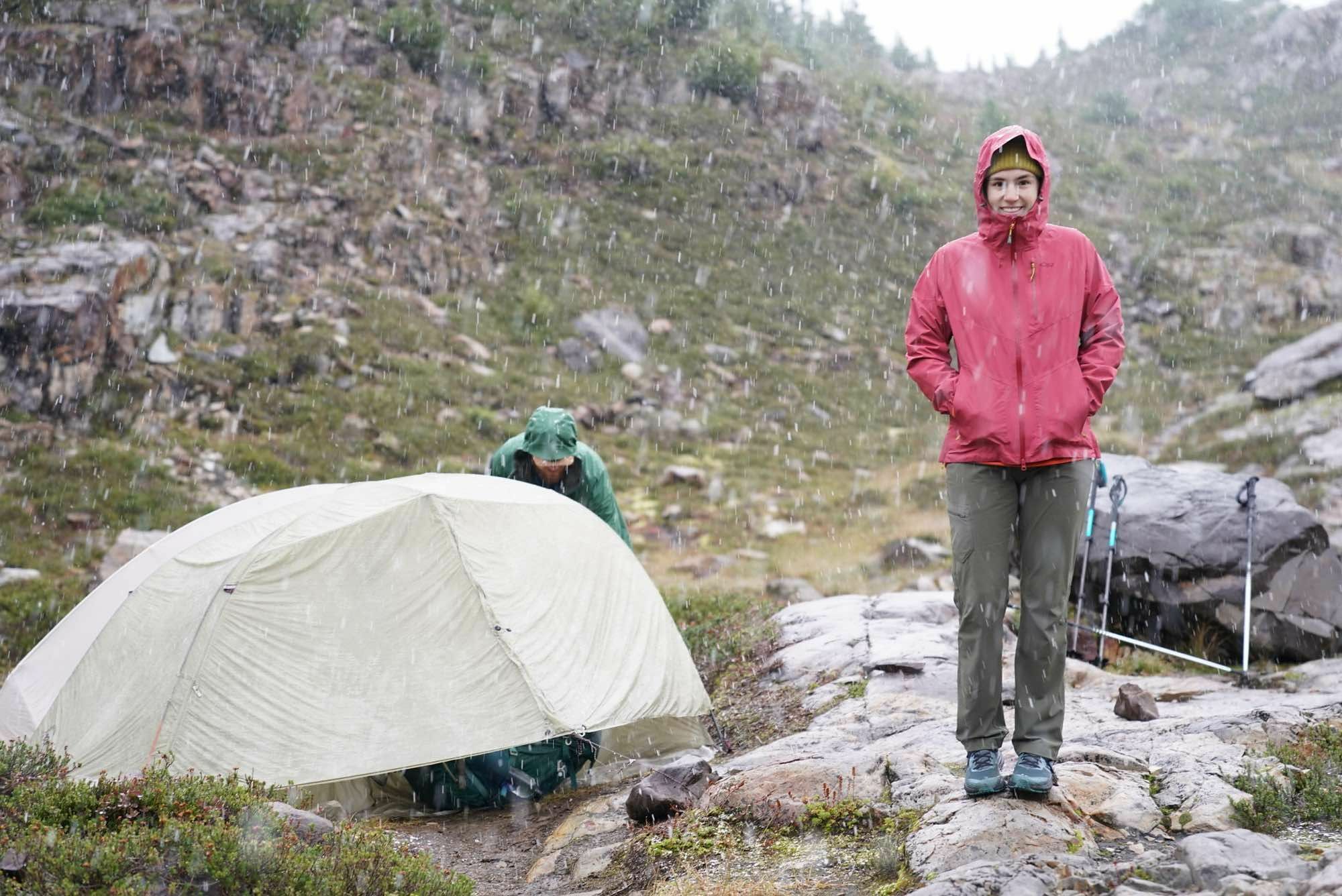
This is being reposted from Outdoor Research's blog, Verticulture. As noted in our last post we definitely experience some rainy backpacking trips here in the North State. Do you have any additional tips for rainy backpacking trips?
Heading out for a stormy, three-day-weekend of backpacking on the coast? Perhaps a rainy overnight in the foothills? Or how about a soggy thru-hike of your favorite river valley? Don’t let the dampness get you down. Backpacking through constant rain can still be quite fun if you’re good at staying dry. Here are 10 tips for taking a backpacking trip through extended wet weather.
1. Layer with your rain gear in mind. Base or mid-weight tights and long sleeve shirts are the simplest, most comfortable and least movement impairing single layer to have underneath hard shells. You’re looking for full skin coverage to keep the jacket off your skin and plenty of stretch for comfort. On short trips into wet weather, I often skip traditional hiking pants altogether, relying purely on tights and hard shells.
2. Seek hardshell jackets and pants with vents. On long trips with constant rain, the outer layer on your hard shells will inevitably wet out. This drastically lowers the fabric's breathability. But pit zips will never fail you and make the hike that much more comfortable.
3. Wear synthetic and fleece insulation only. In drier climates, I'm obsessed with down. But when everything is damp, synthetic insulations like mid-layer fleece or Prima-Loft jackets are key. They’ll maintain some of their respective warmth and puffiness even when the wetness sets in.
4. Waterproof your pack. It goes without saying that you should store the wet-sensitive gear in dry sacks, Ziplocs or garbage bags, but it still helps to protect the outside. Fully waterproof backpacks are far and away the best option, but they're often very expensive and you can get a similar, though less hassle-free result with a pack cover. Remember: A drenched pack is also a heavier pack.
5. Open your pack as little as possible. Every time you open your pack or take the cover off, a bit more rain will get in. This wetness builds up and will probably stay with you for the rest of the trip. To minimize this, store all your regular snacks and heavy-use knick knacks in pockets or on the outside of your pack.
6. Keep your map in a zip-lock bag. Lots of topos are waterproof. But if yours isn’t, be absolutely sure to keep it in plastic bag to prevent water damage whenever you use it.
7. Waterproof trekking boots with waterproof gaiters are great for short trips.Especially if you layer the gaiters under your hard shell pants to create a shingle effect. This system is great at keeping rain out, as it seals off the gap between pants and boots.
8. For longer trips, wear breathable trail runners. Admit defeat. Your feet are going to get wet. Even the best boots, gaiters and pants can't prevent sweat or the prolonged, inevitable wet/dampness of a multi-day rain trip, especially if fords are involved. And really, damp socks are only marginally better than wet socks, so why not just go with the comfiest option: trail runners. Because they’re softer and more breathable than boots, they’ll minimize the potential blister damage otherwise caused by stiff leather and dry quickly in between rain showers. As an added bonus, they’re significantly easier on your legs.
9. Pay extra attention to blister prevention and care. Wet socks will quickly rub the natural oils off your skin which leads to more water absorption, prune-like grossness and a much higher chance of blistering, especially in stiff boots. To help prevent this, reapply those oils with balms or salves from brands like Bonnie's Balm, Joshua Tree or Hike Goo and be prepared with wrap like leukotape.
10. Your new shtick is keeping wet gear out of the tent. Wet packs, boots, jackets, socks, hats, or whatever else should be kept under the vestibule but not inside the tent. Make this your new mantra. Wet stuff in the tent leads to wet sleeping bags and damp puffies, which leads to cold, unhappy campers. Good ventilation, sturdiness and extra space are three excellent traits to look for in your wet weather tent.
Photos by Grant Gunderson, Jason Hummel and Dan Patitucci.




